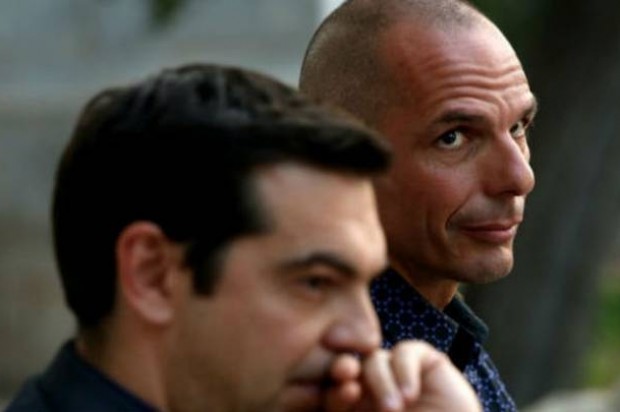By Andrew Rettman, Euobserver
The long wait for the list of Greek reforms is due to end on Monday (30 March), but its government has missed deadlines before.
The European Commission president, Jean-Claude Juncker, and a Greek government spokesman set the new deadline in remarks last week. But the Greek leader, one week earlier, had already promised it to Germany in “the next few days”. The Greek finance minister said the same thing in late February.
If it comes, it will have to add up to austerity for Germany, while not looking like austerity to Greek voters.
It will likely trigger a snap meeting of eurozone ministers, who will evaluate if the cutbacks and/or tax hikes are enough to release €7.2 billion of aid.
If it doesn’t come, Greece will move closer to zero hour: It needs the money to finance loan repayments and to pay civil servants’ wages. It also needs to recapitalise banks, with Greek savers withdrawing over €7 billion last month alone amid fears Athens will go bust and quit the euro.
For her part, Marine Le Pen, the leader of France’s far-right National Front, wants to strike an even mightier blow against the Union.
She said last week, after her party came second in local elections, that if she becomes French president in 2017 she’ll hold a referendum on EU membership.
It’s a dim prospect, but if France left the EU, there would be no EU, with the second round of local elections, on Sunday, to gauge the impact of her statement.
For his part, Juncker, together with EU foreign affairs chief Federica Mogherini, will travel to Kiev on Monday.
Unlike his predecessor, Jose Manuel Barroso, he hasn’t shown much interest in Ukraine or in foreign affairs since coming to office.
But the visit, which will see him co-chair a meeting of the Ukrainian cabinet, is his first bilateral trip abroad and is meant to symbolise EU solidarity.
Mogherini will the next day go with EU Council chief Donald Tusk to Tunisia, where a terrorist attack killed European tourists earlier this month.
The council and the commission have a quiet week in the run-up to the Easter vacation. The main item on the agenda is pledging extra aid money for Syria at a conference in Kuwait.
The European Parliament is a little more busy.
The defence sub-committee will speak with the Nato secretary general and with the EU’s counter-terrorism co-ordinator on Monday about Libya and about the Islamic State’s threat to Europe.
MEPs will the next day quiz economic affairs commissioner Pierre Moscovici on tax avoidance.
The debate is to focus on member states’ tax perks for multinationals. The commission has promised to take action, but critics fear it’s little more than a face-saving exercise for Juncker, who oversaw Luxembourg’s tax avoidance regime in his time as PM.
MEPs in the monetary affairs committee will the same day vote on new rules on financial market benchmarks.
The rule-change was prompted by the Libor scandal. Libor – the London Interbank Offered Rate – is an interest rate benchmark which underpins $350 trillion of derivatives trading. In 2012, it emerged the London rate had been fiddled to maximise banks’ profits for the past 20 years.









